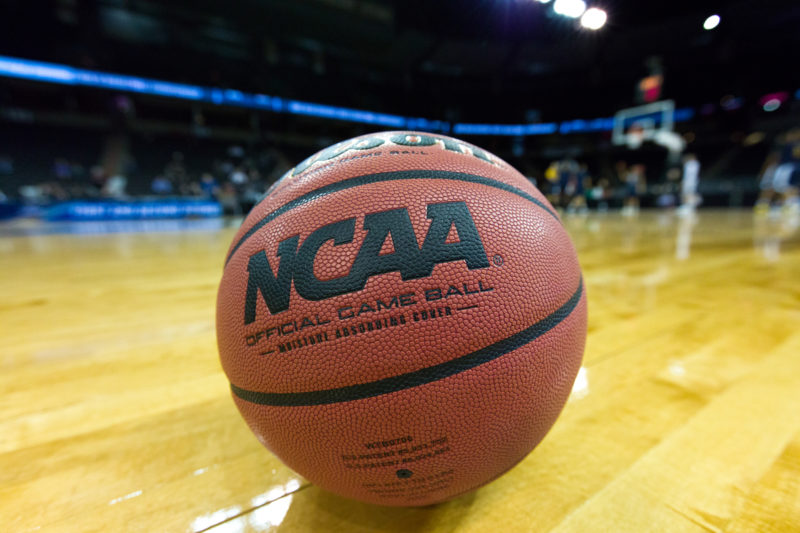California’s Law on Paid Athletes Is Not a Free Market Reform
The National Review recently posted an article by David French heralding the California state legislature for its “pro-free market” policy allowing student athletes to get financial compensation for commercial endorsements and/or earning royalties on products using their likeness. Whatever one may think about paying student athletes, it is fundamentally wrong to consider the California law as a “free-market reform.”
Mr. French seems to rest his argument that this legislation is free-market oriented on the idea that student athletes should be free to negotiate compensation for their various activities. This certainly fits under the definition of free exchange and is hardly objectional to those of use who favor laissez faire policies (although I prefer the term laissez échanger, which means “allow to exchange”).
The problem, though, is that French’s position ignores the importance of two parties making a voluntary contract. Having a third party (i.e., a state legislature) dictate the terms of that contract is not a step in the direction of freer markets.
To wit, the NCAA and its member universities have decided to offer an opportunity to talented athletes to play any variety of sports under certain conditions. Those conditions include that the athlete in question not receive any financial compensation from outside sources including advertising revenue or bags of unmarked bills from alumni boosters. The schools also offer to some of these athletes compensation in the form of scholarships, medical care, and training table food.
In a “free market world” those are the terms of the exchange and the individual can take it or leave it. As we have seen, many individuals do see this as an attractive offer and take the opportunity. This includes not only the star football and basketball athletes, but individuals such as swimmers and wrestlers.
For those latter athletes, this is an ideal exchange as they might not otherwise get the benefits of attending a college. The terms of trade for them are very favorable. As for the top-notch football and basketball athletes, we know that there must be something attractive in signing such a contract prohibiting outside compensation because many of them take the deal. Part of the attraction of this deal may be to show off their talent to professional teams that will later employ them. In many ways, this could be likened to an unpaid internship at a corporation or in a state legislature – an opportunity to display one’s talents and hone one’s skills with the expectation of some payoff in the future.
The ability to propose and accept the terms of a contract voluntarily are the hallmark of a free market. Having a third party dictate what the terms of the contract are interferes in the freedom of both parties. Free market advocates who are opposed to minimum wage legislation should know this. At a fundamental level, the ability of the NCAA to set the terms of exchange with prospective student athletes is the same ability of other organizations being able to set the wages (and other terms) of the contract with their employees.
Now Mr. French does seem to think that individual athletes “who often lay their bodies on the line in front of stadiums full of adoring fans and an immense national-television audience” should be compensated financially especially since their coaches and school rake in millions of dollars from their performance. While that certainly sounds wonderful, it is not up to a government to determine that distribution if one views free markets as favorable. Indeed, this reasoning is only a small step away from saying that the maintenance staff of a corporation should be compensated at the same rate as the CEO.
If there is a free-market argument for allowing a legislature to intervene in the terms of trade between universities and athletes, it might be that the NCAA acts as a cartel that restricts the free movement of labor and goods. Trust-busting as a means of saving the market from itself has long been used by the partisans of government to justify interventionist policies that often have other intentions lurking below the surface.
But is the NCAA really a cartel? And if it is, what is it a cartel of? Yes, the NCAA (holding aside significantly smaller groups such as the NAIA) is basically the sole “buyer” of college athletic labor. However, the labor that it is buying could easily be deployed and purchased elsewhere including a number of small semi-professional sports leagues or other activities that require strong and agile individuals to perform tasks (e.g., working construction). Granted, there might not be much use for a person who can throw an oblong ball effortlessly for 60 yards, but the underlying physical skills of that individual could be deployed in other forms of manual labor.
It could be said that the NCAA is a cartel in that it dictates the terms of trade amongst its members, telling Alabama that it must treat its student athletes the same as UCLA or Kennesaw State. But this misses the point that the NCAA is in competition with other forms of entertainment including other sporting leagues, movie theaters, and makers of the board game Monopoly. I could choose to do any of these other diversions on a Saturday afternoon rather than attend a football game or swim meet.
The NCAA is actually a voluntary association of universities that agree to create a competitive environment by yielding to the same rules of contracting out with student athletes. There is a belief amongst the member schools that these rules will “level the playing field” between universities, create a more exciting and competitive product, and yield greater benefits. Should any of the member schools not agree to these terms or see the arrangement to their advantage, they are free to leave and create their own voluntary association (with the possibility of allowing their athletes to be paid financially).
None of my argument above is meant to address whether or not student athletes should be paid or allowed to receive external compensation from commercial endorsements. This is merely an issue of whether or not government can dictate the terms of trade between private individuals, in this case an entity called the NCAA and athletes.
The bottom line here is that a government law dictating the terms of trade for any organization does not move the ball towards the free market end zone. Those who see it as such are essentially fumbling on freedom.












